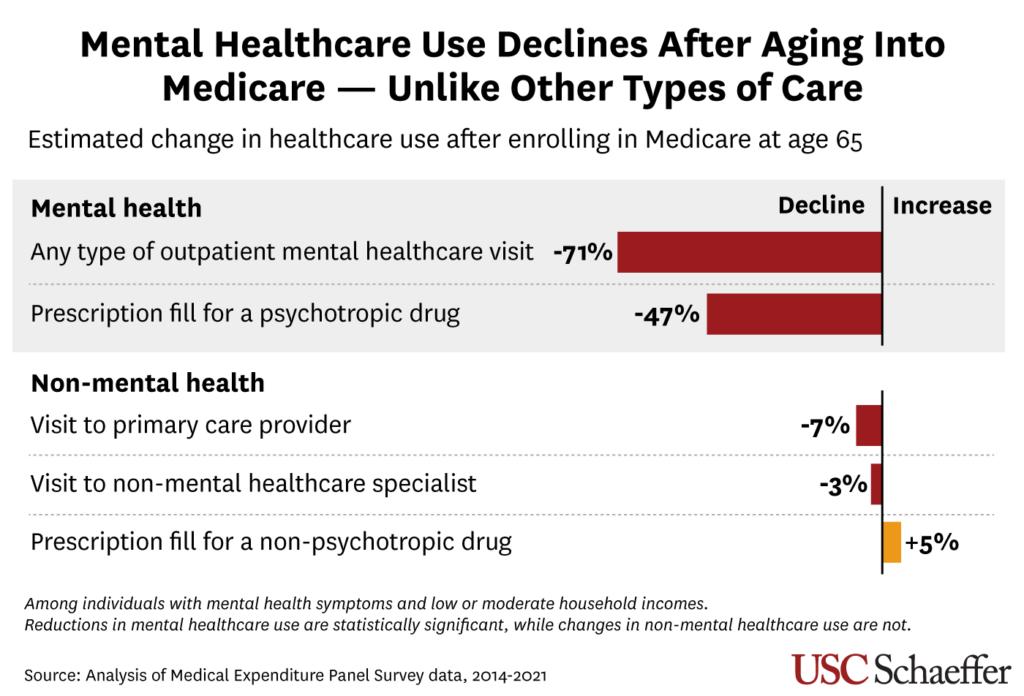People with mental health symptoms from low- and middle-income households tend to receive much less mental healthcare upon aging into Medicare, according to new research from the USC Schaeffer Center for Health Policy & Economics.
Key finding: Enrolling in Medicare was associated with a 71% decline in the likelihood of having any type of outpatient mental health visit, even after controlling for factors like employment and income. It was also associated with a 47% lower likelihood of receiving a psychotropic drug, such as antidepressants and mood stabilizers. These negative impacts were found for both traditional Medicare and its commercial equivalent, Medicare Advantage.
Why it matters: There has been growing concern about Medicare beneficiaries’ access to mental healthcare services, given the program’s coverage limitations and low participation among mental health providers. The new study in Health Services Research appears to be the first to investigate how enrolling in Medicare at age 65 affects use of common mental healthcare services for people with probable mental health symptoms.
“People with substantial mental health needs appear to receive drastically less mental healthcare once they age into Medicare,” said Schaeffer Center research scientist Grace McCormack, the lead study author. “This is especially concerning given the high and growing demand for mental health care among the over-65 population.”
What the researchers found: Medicare enrollment, meanwhile, did not affect how often this same group of people received care from non-mental health providers and filled prescriptions for non-psychotropic drugs. This suggests that Medicare—regardless of whether people enroll in the traditional program or Medicare Advantage—poses access barriers specific to mental healthcare for people who would struggle to pay for care entirely out of pocket.
Notably, those with mental health symptoms from higher-income households saw no change in visits to mental health providers, while their use of psychotropic drugs increased.

About the study
The study drew on a nationally representative survey of health care use, spending and insurance coverage from 2014-2021.
Other authors include Erin Duffy and Josephine Rohrer of the USC Schaeffer Center and Adam Biener of Lafayette College.
Sign up for Schaeffer Center news
Related Work
-
Perspective
Medicare’s Mental Health Care Problem



You must be logged in to post a comment.